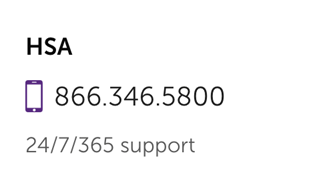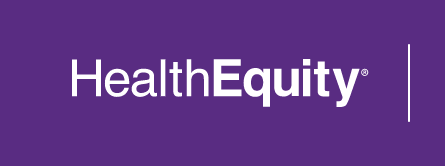These days, the health savings account (HSA) is almost a household name. Created in 2003, more than 30 million accounts have been opened in the past 18 years.1 But just because the HSA is common doesn't mean it's well-understood. To help you shore up your health savings know-how, let's bust 10 HSA myths.
Myth #1: The HSA is too complicated
The truth is that the HSA is pretty straightforward. HSAs work just like traditional savings accounts but confer several tax advantages that your savings account doesn't provide. And just like checking accounts, an HSA uses a debit card2 that you can use to pay for qualified medical expenses such as hospital services and preventative screenings.3
Myth #2: If I don't use my HSA funds, I'll lose them
HSA funds never expire. Unlike Flexible Spending Account (FSA) funds, you own your HSA. There is no deadline for spending your funds; in fact, many people contribute to their HSA to save for healthcare in retirement. Simply put, the use-it-or-lose-it rule you know from other benefits doesn't exist with the HSA.
Myth #3: If I change jobs, I'll lose my HSA funds
With an HSA, you keep everything that's contributed to your account-regardless of your employment status. From the moment the funds hit your account, they're yours forever. The health insurance policy that qualifies you to open or contribute to an HSA may be offered by an employer-and your employer may contribute funds-but the account is yours and it follows you from job to job.
Myth #4: The HSA is a spending account, not a savings account
The HSA's triple-tax advantage empowers you to accelerate long-term health savings.4 First, you save when you spend. Because you use tax-deductible contributions to pay for qualified healthcare products and services, your annual HSA tax savings can add up fast. Second, you can invest your HSA funds and have potential for tax-free account growth.5 Third, if you're using HSA savings, it's not taxed as income when you spend it.
Myth #5: An HSA is only for healthy people
There's a misperception that HSAs are only for healthy people. In reality, people with chronic medical conditions can significantly benefit from annual HSA tax savings. When you access care, you can pay your bills with tax-free funds. Over time, you can build up a health savings balance for times when you do require significant care.
Myth #6: The HSA is only available through your employer
HSAs are often offered through employers, but it's not the only way to open or contribute to an account. Because HSAs are independently owned, anyone who is enrolled in an HSA-qualified health plan can open an HSA. Most employers that offer an HSA work with a preferred administrator. However, you're at liberty to open an HSA with any administrator you want. Just be aware you could lose the ability to make pre-tax payroll contributions (though post-tax contributions are always available and may be claimed as an adjustment to your taxable income).
Myth #7: I'm too old (or young) to benefit from an HSA
HSAs bring significant advantages for all ages. If you're younger, an HSA lets you set aside a second nest-egg for healthcare expenses in retirement.6 And if (like most young people) you don't have a lot of healthcare expenses today, you can stash the money away for long-term needs tomorrow. If you're a senior, an HSA gives you the ability to catch-up on retirement savings-the IRS allows members 55 and older to make $1,000 additional annual contributions.
Myth #8: You can't contribute to your HSA after you turn 65
You can contribute to an HSA at any age-provided you're enrolled in an HSA-qualified health plan. Because Medicare is not an HSA-qualified health plan, you can't enroll in Medicare and contribute to an HSA. As long as you're not enrolled in Medicare-and remain enrolled in an HSA-qualified plan-simply turning 65 does not disqualify you from contributing to an HSA.
Myth #9: An HSA is too expensive and only works for wealthy people
While HSAs do need funds to grow, they aren't designed as a benefit just for the wealthy. HSAs empower families at all income levels to put more money in their pocket and stretch every dollar further. HSA-qualified health plans usually confer significant premium savings. Then, whatever you don't spend on annual health insurance premiums can be put away for a future healthcare emergency.
Myth #10: HSA contributions don't grow
HSAs earn interest just like a traditional savings account-the only difference is that the interest earned on your HSA isn't taxed. HSAs enjoy tax-free investment growth, year after year. And unlike an FSA, you can invest your HSA balance. Although only a small percentage of people invest their funds, doing so is a powerful way to potentially grow your savings.5
The HSA works for everyone
We hope the mythbusting helped you see HSAs as valuable in many ways. At HealthEquity, we believe HSAs are for everyone. And with a little work, you can use your account to build savings that will benefit you now and in the future.
If you have any questions, you can always reach out. We're available 24 hours a day, seven days a week, 365 days a year.

HealthEquity does not provide legal, tax or financial advice. Always consult a professional when making life-changing decisions.
2This card is issued by The Bancorp Bank; Member FDIC, pursuant to a license from Visa U.S.A. Inc. Your card can be used everywhere Visa debit cards are accepted for qualified expenses. This card cannot be used at ATMs and you cannot get cash back, and cannot be used at gas stations, restaurants, or other establishments not health related. See Cardholder Agreement for complete usage restrictions.
3It is the members' responsibility to ensure eligibility requirements as well as if they are eligible for the expenses submitted.
4HSAs are never taxed at a federal income tax level when used appropriately for qualified medical expenses. Also, most states recognize HSA funds as tax-deductible with very few exceptions. Please consult a tax advisor regarding your state's specific rules.
5Investments are subject to risk, including the possible loss of the principal invested, and are not FDIC or NCUA insured, or guaranteed by HealthEquity, Inc. Investing through the HealthEquity investment platform is subject to the terms and conditions of the Health Savings Account Custodial Agreement and any applicable investment supplement. Investing may not be suitable for everyone and before making any investments, review the fund's prospectus.
6After age 65, if you withdraw funds for any purpose other than qualified medical expenses, you will be subject to income taxes. Funds withdrawn for qualified medical expenses will remain tax-free.


